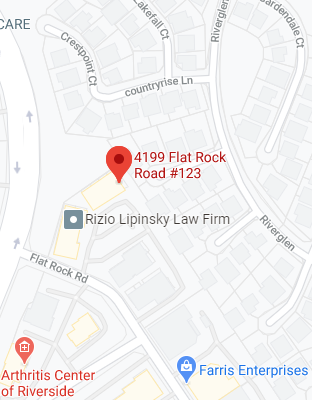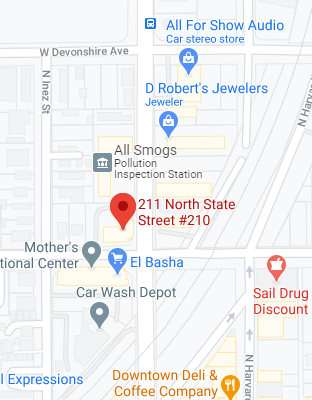
The young lawyer stepped tenderly to the podium. His case was the first to be called on the 8:00 a.m. calendar.
He seemed three months out of law school.
As he spoke to the immigration judge, his voice squeaked. His motion was simple. He asked for a new hearing date.
Waiting my turn, I listened to his presentation.
He was a new associate in his office. His client’s hearing was four weeks away.
His employer believed the case presented complex issues and felt the need to personally handle the next hearing. However, his boss had a scheduling conflict and would be out of state.
The request seemed reasonable to me.
The judge blew a fuse.
In a deep and harsh voice, he scolded the young attorney, “Tell your boss if she does not personally appear, I expect you to represent your office’s client. She should not enlist the assistance of counsel unequipped to handle her cases.”
After replying, “Yes, your honor,” the young man turned, put his head down, and left the courtroom.
The judge was out of line, way out of line.
Perhaps the judge had a bad breakfast or a rough commute into the office. Maybe he woke up on the wrong side of his bed. His behavior was still inexcusable.
Immigration Court Overload
And Burnout
I’ve often wondered about a seeming immigration misery index, and why some judges act like having temper tantrums is a form of judicial discretion.
Over a decade ago, The American Bar Association published Reforming the Immigration System: Proposals to Promote Independence, Fairness, Efficiency, and Professionalism in the Adjudication of Removal Cases, which shed one of the first lights on the problem.
The report did not pull any punches.
Acknowledging many immigration judges display bias and intemperate behavior on the bench, the ABA pointed out these judges are not doing a good job in providing fair decision making and due process to immigrants at deportation and removal hearings.
Stress is often a leading cause of subpar performance.

A major source of stress and burnout experienced by immigration judges, noted the ABA, is caused by the large caseloads placed on immigration judges and a shortage of support staff, including paralegals.
Since then, the overload has worsened.
At the start of this year, a study by TRAC Immigration, a nonpartisan, nonprofit research center affiliated with Syracuse University, revealed that the immigration court system now has a caseload of nearly 2.1 million cases.
There are 69 immigration courts and 650 immigration judges.
This means, on the average, each judge has a caseload of approximately 3,230 per year.
There is simply no way for judges to keep pace.
Due to a lack of time, many immigration judges issue far too many oral decisions, even in complex cases, causing issues for appeal courts.
In addition, as the ABA report noted long ago, immigration courts are similar to a forgotten step-child, resulting in a lack of sufficient training, minimal training of new judges, and inadequate supervision, as well as inadequate staff resources.
Judicial Temperament
In The Face Of Pressure
Prior to joining the bar, I had an idealized notion of a judge. In my mind, a judge was a person who exhibited integrity, intelligence, wisdom, fairness, morality, freedom from bias, and respect for others.
Reality, at times, has shattered such images.
In their defense, judge are under a lot of daily pressure. Being “Mr. Congeniality” day in and day out is a struggle – especially in the immigration court system.
Still, I believe judges should show respect to all who come before them – from squabbling parties and argumentative attorneys, to evasive witnesses and inattentive jurors.
No judge, after all, would excuse my undue rudeness on the basis of personal stress and a heavy work schedule.
Our system of justice depends on public trust. As more and more judges fail to treat everyone with dignity and courtesy, even while being decisive, trust in our legal system erodes.
It does not help when our role models, like judges, fail to demonstrate a role to model.
With Great Power
Comes Great Responsibility

I’ve been an immigration attorney for almost three decades. I’m accustomed to a culture of rudeness which pervades significant parts of our immigration system.
Nonetheless, I was shocked at the immigration judge’s unprovoked verbal assault on a new bar member.
My case was seventh in line. I decided to follow the young attorney and try to lift his spirits. I caught up with him at the elevator.
On the way down, I told him that he did a good job in clearly outlining the position of his client and his employer. I stressed the judge’s comments were inappropriate.
I encouraged him to discount the judge’s remarks and return to court in four weeks, fired up and ready to make the judge eat his words.
I drank some water and headed back up.
That weekend I watched Spiderman with my son. The movie reminded me, “With great power comes great responsibility.”
Sadly, too many immigration judges don’t get it.
Recommended Reading:
Ready to take a serious and honest look at the strengths and weaknesses of your immigration case? Let’s get started with a personalized strategy and planning session . . .
Here's How It Works
1
Call Our Office
Immigration law doesn’t have to be confusing. You don’t have to live in fear of being deported and separated from your family. A comprehensive 30-minute Strategy And Planning Session will take the stress out of not knowing your options first-hand.
2
Meet With Carlos
Every case is unique. We refuse to take cookie-cutter approaches to your case. After we discuss the ins and outs of your immigration and family situation, Carlos will outline your chances for success and how to overcome obstacles standing in your way.
3
No Pressure - No False
Promises
Hiring a lawyer is a big investment, and we will not pressure you to hire us or push you into a plan you don’t understand. If we cannot help you, we will tell you. We will not take your case, unless we believe we can make a difference for you and your family.




